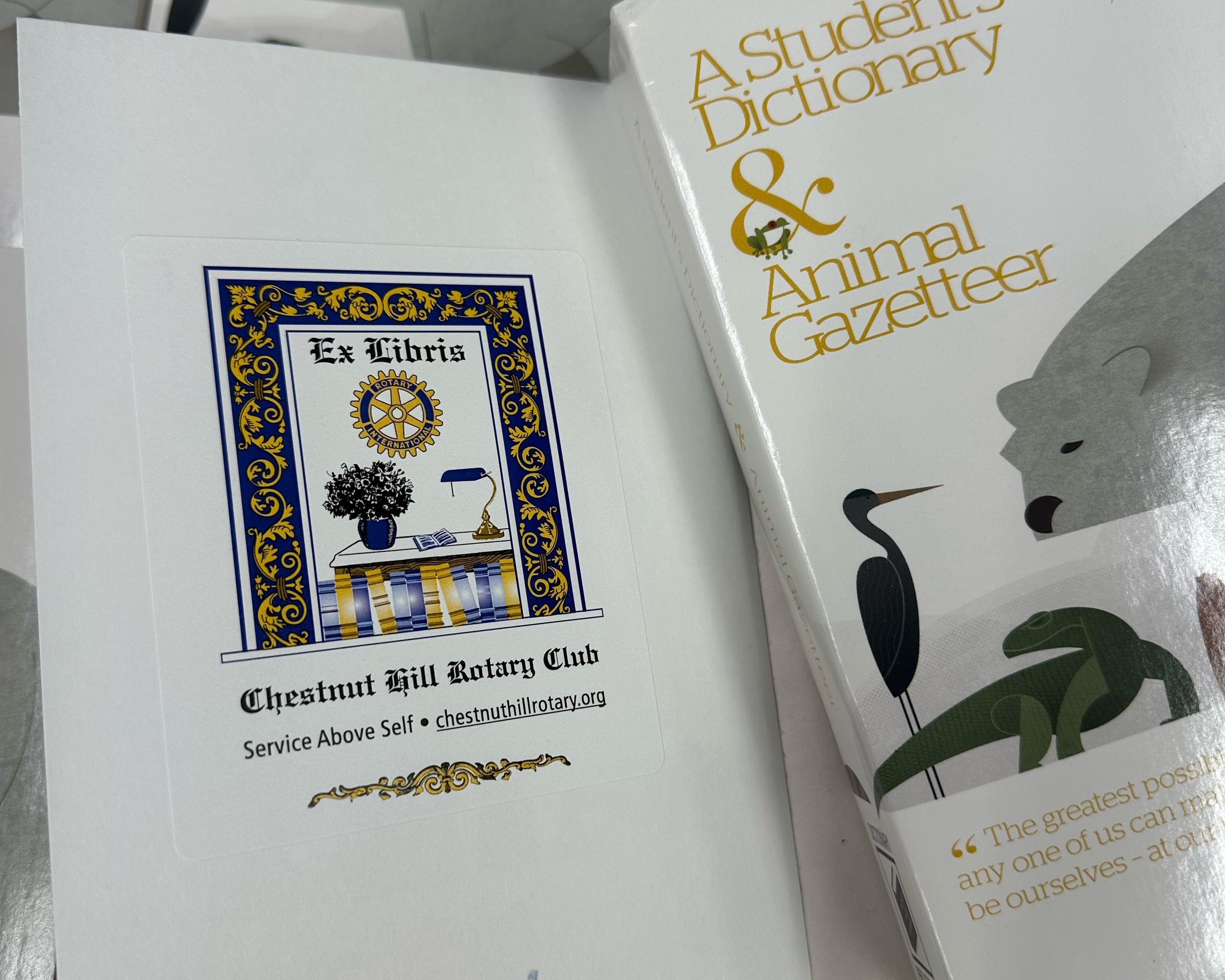SHARE THIS ARTICLE
On a chilly late fall morning, Henry H. Houston Elementary School Principal Leroy Hall leads a cheerful “ABC Song” with third grade students who were excitingly waving dictionaries in the air.
“A B C D E F G… now I know my…” Accompanying Hall in the school’s library were teachers and a half dozen Chestnut Hill Rotary volunteers.
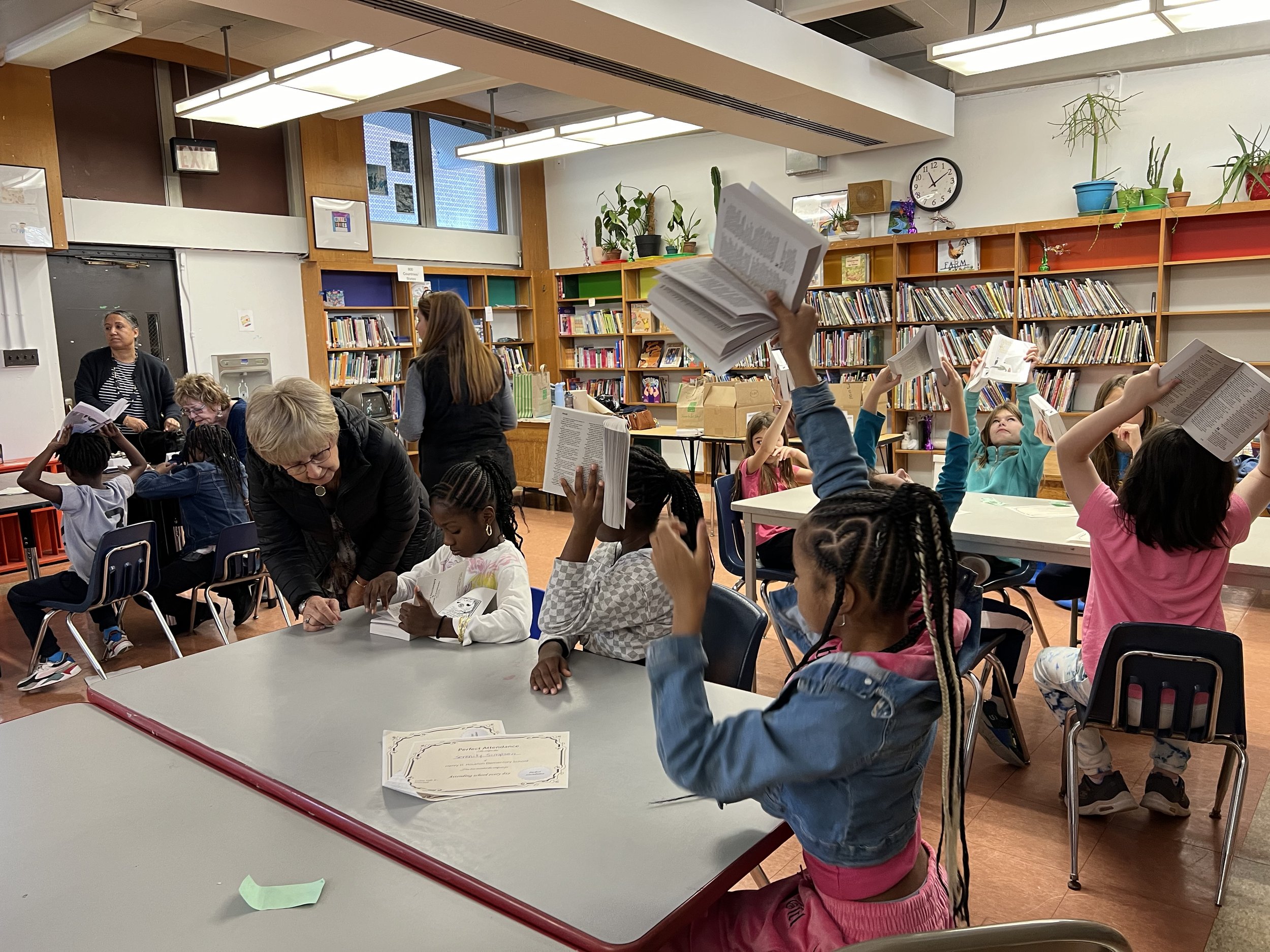

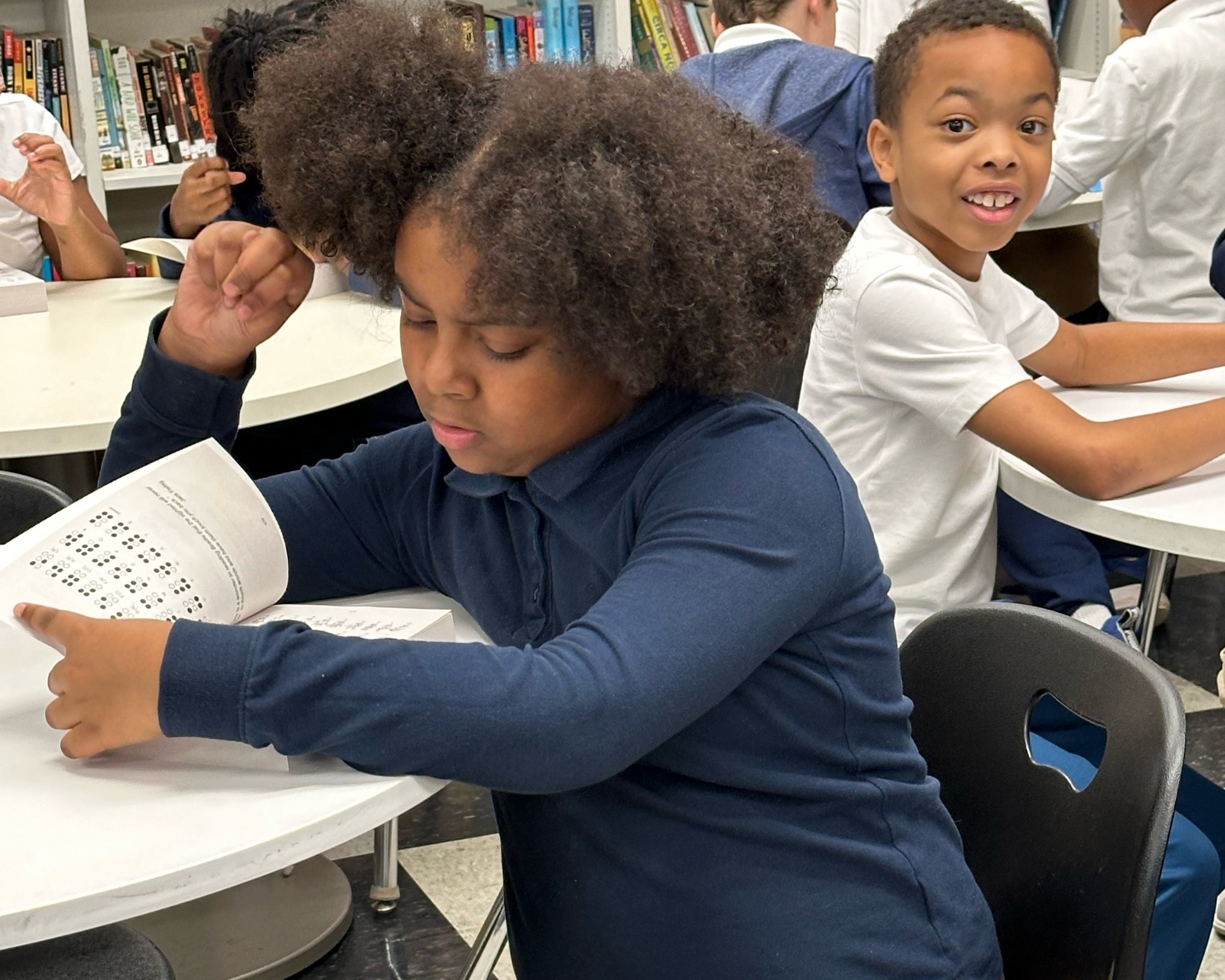
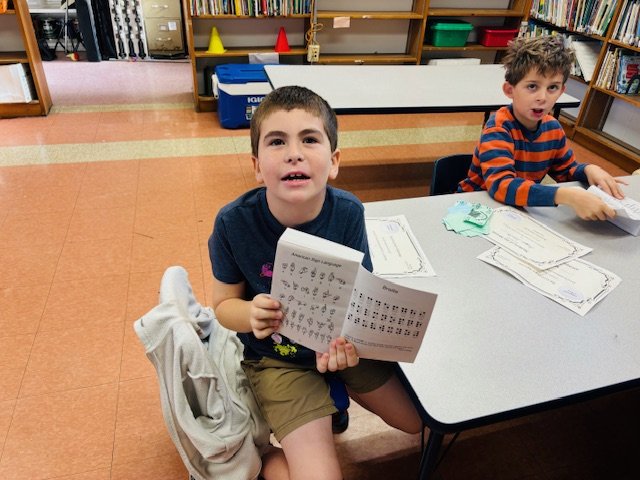

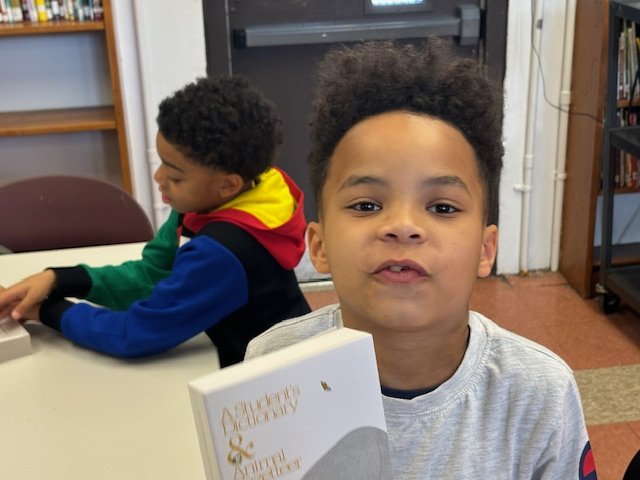
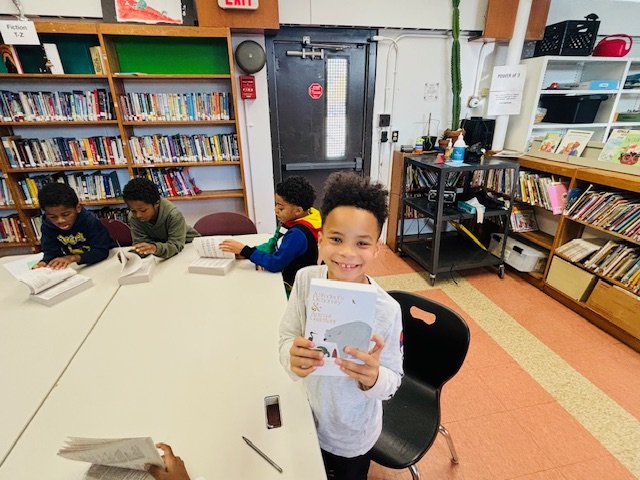



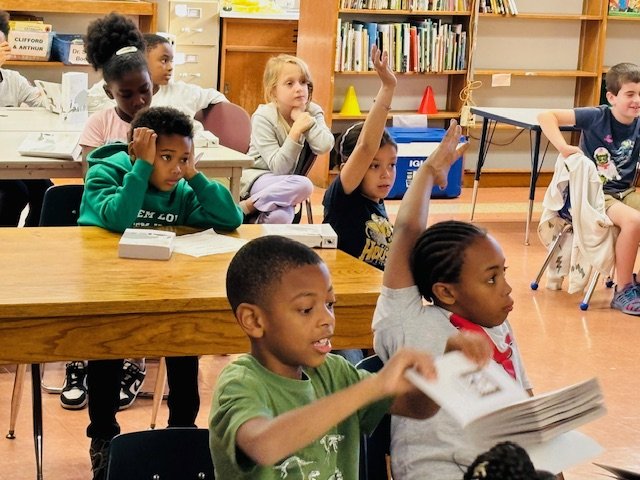
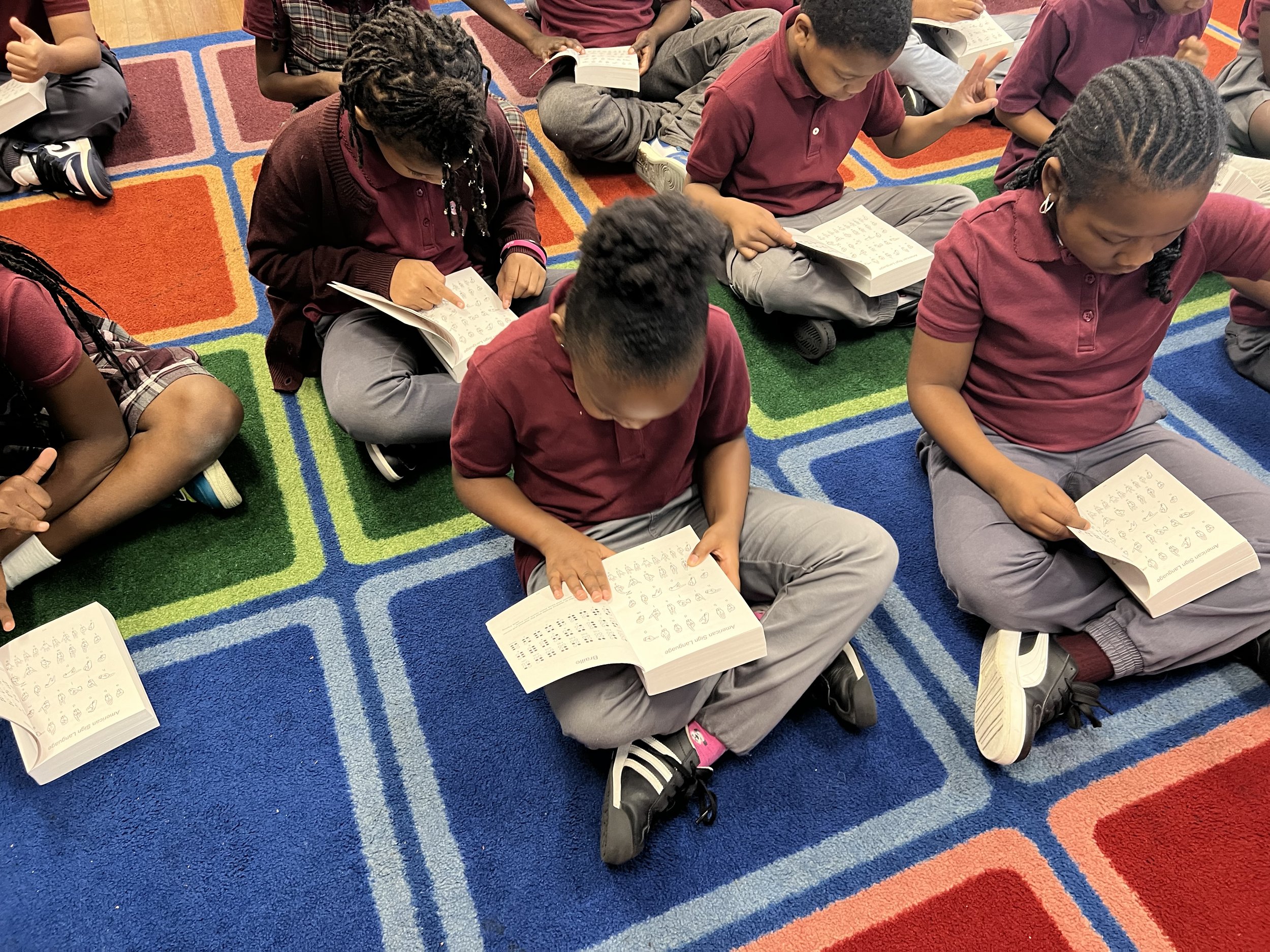
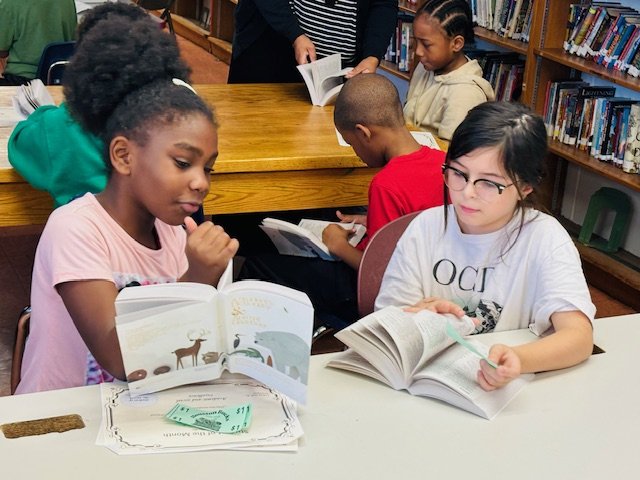



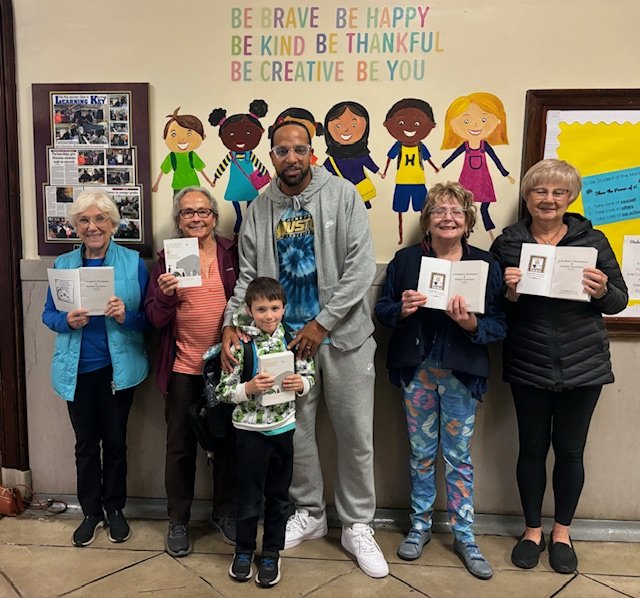
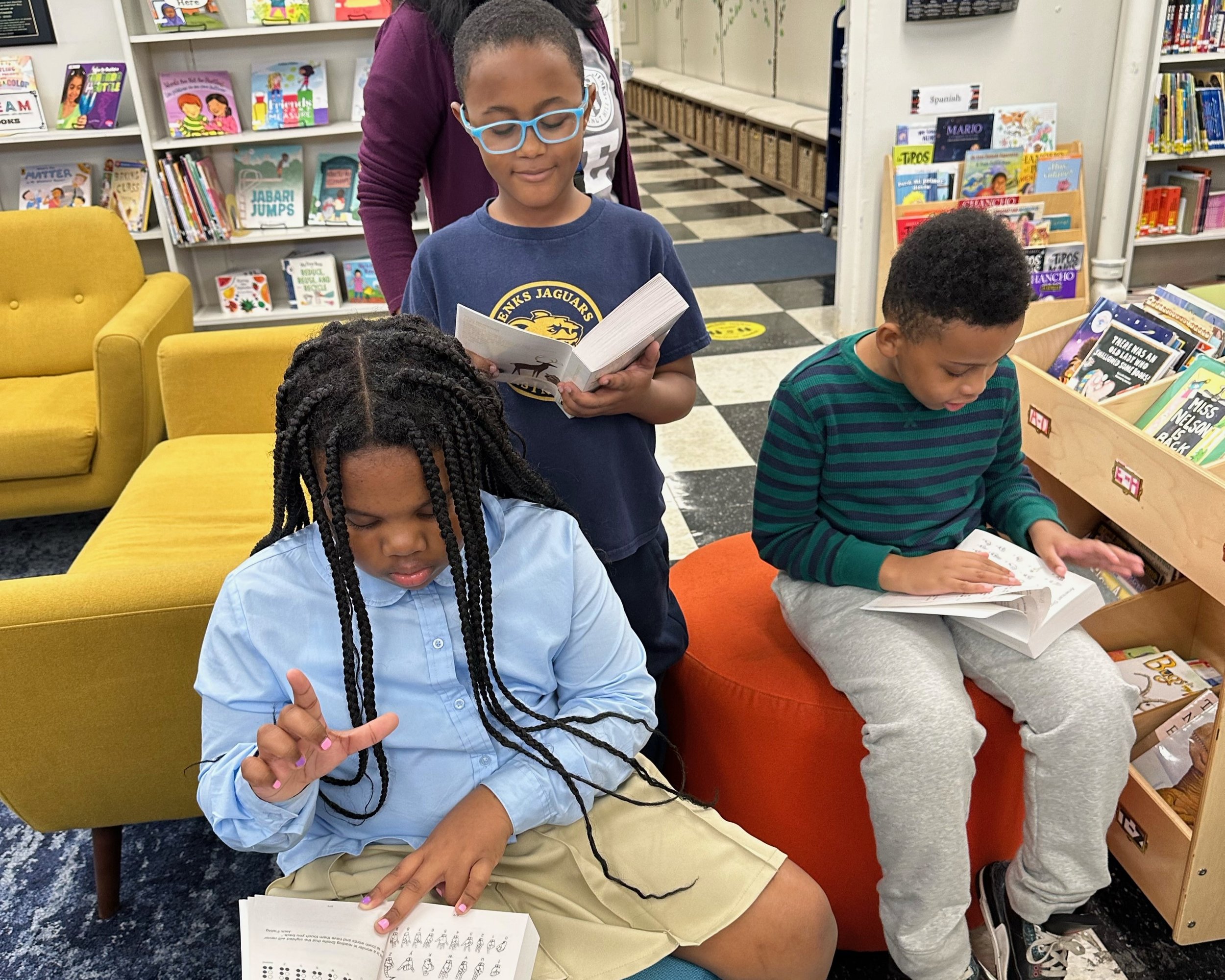
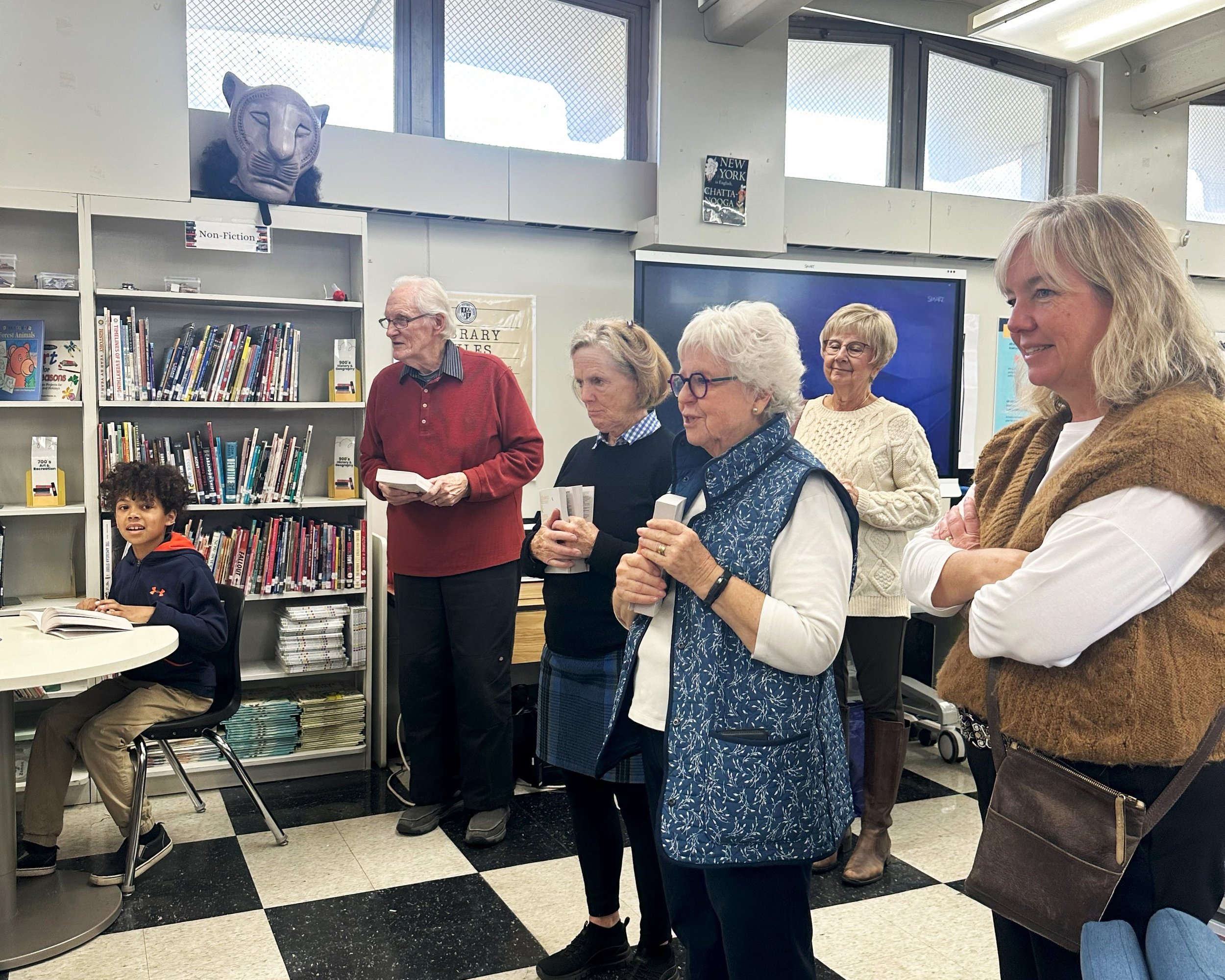


For more than a decade, Chestnut Hill Rotary volunteers raised funds, purchased dictionaries—totaling now more than 3,400—and donated to third grade students in public schools in Northwest Philadelphia. This year the program included donating them to Eleanor C. Emlen, Henry H. Houston, J. S. Jenks Academy for the Arts & Sciences, and Anna C. Lingelbach Elementary School.
However, the books are not merely just dropped off. Rotary volunteers coordinate the distribution with school teachers and principals in advance and then spend time interacting with the students to get them excited about using the books and learning new facts. And, for many of the students, it is the first book that they can call their own.
Carol Bates, long-time Chestnut Hill Rotary member and project leader explains, “It’s different every single time. Every class is unique.” Bates knows because she’s been involved with the project for 15 years. “When we go into the schools, it’s a way for us to enter into the children’s lives. That’s what I love about it.”
The book, entitled A Student’s Dictionary & Animal Gazetteer, is full of interesting facts that covers everything from world geography and sign language to the longest word in the English dictionary (it’s 45 letters).
When Maggie Stoeffel joined Chestnut Hill Rotary and learned about the project, she was very skeptical. When she was first asked to volunteer for the project she thought, “Well this is going to go over like a lead balloon. But, boy, was I wrong!” says Stoeffel now.
This video describes the impact of the project on their students and classroom learning both short and long-term from the educators' perspective
It’s called the Dictionary Project, but it is really much more. Stoeffel serves as Chair of Community Services Committee which coordinates both financial support and hands-on service to the community. “About halfway through the book, I was reminded of when I was in elementary school being exposed to the Guiness Book of World Records and how engrossed my friends and I were with all these crazy facts and details,” said Stoeffel.
But, the real value of the project may be showing the students that there are other people beyond their parents, teachers and principals who care about their future.
“Receiving the books from adults matters. It’s so different when there’s community outreach...”
Hall explains the value saying, “Having Chestnut Hill Rotary spend time with our students and us being able to tell kids that it’s not just the people inside the school that have a love for you and are working hard to see that you have a good education. It’s people outside of here that are also investing in your future.”
“Receiving the books from adults matters,” said Corinne Scioli, principal at J.S. Jenks Academy for the Arts and Sciences. “It’s so different when there’s community outreach that then shares the mindset that this is really important and relevant, and this gift is to ensure your lifelong learning and pursuit of excellence.”
“I think it builds a sense of community, said Heidi Fabian, third grade teacher at Eleanor C. Emlen elementary school. “Mt. Airy, Chestnut Hill is one of the strongest communities in the country. Oprah said it decades ago. This project is just evidence of that. No matter where you are, this community is going to support you.”
Third grade students at Eleanor C. Emlen Elementary school with Rotary volunteers
Both Fabian and Hall noted that the School District of Philadelphia recently announced a new English language arts curriculum that requires the daily use of dictionaries for third grade students. “When we learned this, we realized we need those dictionaries today from Chestnut Hill Rotary,” said Fabian.
Scioli strongly believes that the dictionaries are a really timely gift for third-graders because it is a pivotal year for students. “Students in third grade shift from learning to read to reading to learn.” She notes that it teaches students how to use a more informational reference text in easy, accessible ways that is fun and engaging.
The idea for the Dictionary Project originated in 1992 when Annie Plummer of Savannah, Georgia gave dictionaries to students who attended a school close to her home. The Project grew exponentially and too big for her to handle.
“For people that are excited about supporting the public schools, it’s as simple as a book that has facts that kids have not been introduced to before, and that exposure can be a seed that grows for you don’t know how long,”
By 1995, one of Plummer’s volunteers, Mary French, decided to form a nonprofit organization to help raise funds and coordinate the distribution across the country. The project became national after The Wall Street Journal wrote an article about it. French became the first director and is still to this day. Since its founding, the organization has distributed over 37 million dictionaries through various organizations. According to French, Rotary clubs account for more than half of the distribution of the dictionaries.
“The reason we do it is to have an educated population in order to maintain our democracy,” said French. She also believes that reading is more important than, say, watching a video because your brain is much more active. “It’s like doing exercises. It makes you think more.”
“I was quite honestly blown away about how excited they were,” said Hall. “I did not know they were going to be so impacted by this and they were just in awe of almost every part of the book.” Like Stoeffel, it reminded him of when he was a kid reading the Guinness Book of World Records and how fascinated he was about facts.
In addition to the curricular needs, schools continue to use the dictionaries all year long. Emlen has “Fun Fact Fridays” where students have to look up or research interesting facts. Jenks uses the dictionaries on their daily announcements to the students.
“For people that are excited about supporting the public schools, it’s as simple as a book that has facts that kids have not been introduced to before, and that exposure can be a seed that grows for you don’t know how long,“ said Hall.

